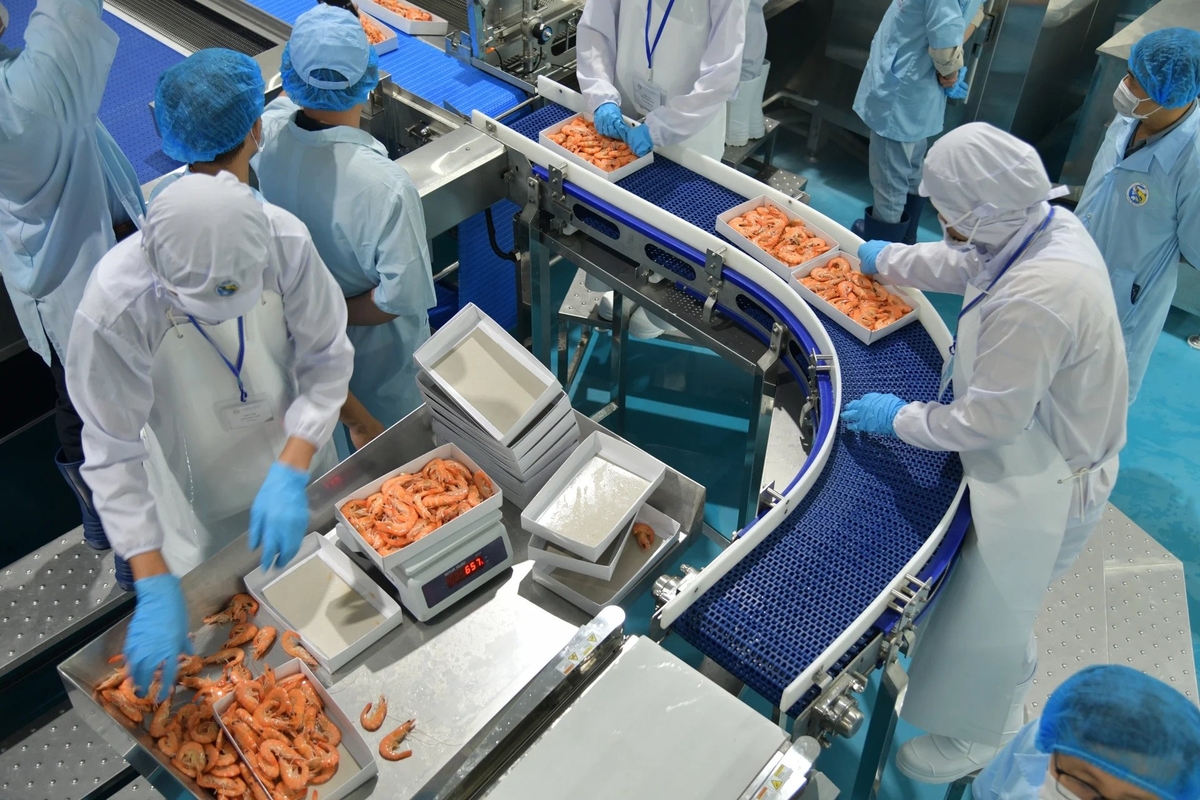December 31, 2025 | 06:46 GMT +7
December 31, 2025 | 06:46 GMT +7
Hotline: 0913.378.918
December 31, 2025 | 06:46 GMT +7
Hotline: 0913.378.918
According to Verified Market Research, the Halal food and beverage market in the Middle East and Africa was valued at USD 60 billion in 2024. This figure is projected to surge to USD 110 billion by 2032, reflecting a compound annual growth rate of 7.87% between 2025 and 2032.

Nguyen Thi Ngoc Hang, Marketing Director of Halal Certification Office - HCA Vietnam. Photo: Hong Tham.
Halal products must comply with Islamic dietary laws, meaning they are free from prohibited ingredients such as pork and alcohol and must be processed using clean, ethical, and traceable methods. Certification ensures that the entire production chain, encompassing raw materials, processing, packaging, and logistics, adheres to strict religious and hygiene standards. This makes Halal certification a key factor not only for compliance but for building trust in a consumer base for whom food is intrinsically tied to faith.
Nguyen Thi Ngoc Hang, Marketing Director at the Halal Certification Office (HCA Vietnam), highlighted that Vietnamese exporters stand to benefit significantly from this growing demand. She cited products such as rice, cashew nuts, tropical fruits, spices, and processed foods as having strong export potential, particularly in fast-growing markets like the United Arab Emirates and Saudi Arabia.
“Halal certification is not merely a legal requirement - it’s a statement of integrity and respect for Muslim consumers,” Hang said. “It assures them that the product meets religious, ethical, and quality standards. That assurance builds long-term brand loyalty.”
She emphasized that the scope of Halal has expanded in recent years. Today’s Halal-certified products are often perceived as safer, cleaner, and of better quality - even by non-Muslim consumers who value hygiene, ethical sourcing, and transparent supply chains. In this context, Halal becomes a gateway to wider global markets, not just religious ones.
Vietnamese products, already featured in global food processing chains, could gain a competitive edge by aligning with Halal standards. However, certification is not automatic; it requires active investment in upgrading production systems and supply chain traceability.
“Halal-certified Vietnamese goods don’t just gain entry - they gain positioning in a value-driven market ecosystem,” Hang said.

Businesses need to focus on training and raising awareness of Halal standards and consumer culture of the Muslim market. Photo: Hong Tham.
For Vietnamese enterprises, obtaining Halal certification opens the door to new trade relationships, improves brand credibility, and creates opportunities to enter long-term contracts with buyers who prioritise religious and ethical compliance. It also serves as a catalyst for internal improvements, prompting firms to enhance their food safety, documentation systems, and management processes.
Yet many companies remain underprepared. “A key challenge is the lack of understanding about Muslim consumer behavior,” Hang explained. Without this knowledge, firms may struggle to tailor product design, marketing, and even packaging to local expectations.
Moreover, the Halal certification landscape is complex. Standards vary across countries, and exporters often have to navigate multiple certifying bodies to meet destination-specific requirements. This not only increases costs but can create delays and operational bottlenecks.
Vietnam also suffers from a shortage of trained Halal professionals. Many companies lack qualified staff capable of managing certification audits, ensuring compliance, or even sourcing Halal-compliant raw materials.
To navigate these challenges, Hang recommended that companies invest in workforce training focused on Halal standards and Islamic market culture. “Staff need to understand not just how to comply, but why it matters to consumers,” she said.
She also urged businesses to build internal Halal-compliant systems, maintain strict hygiene protocols, and establish traceable supply chains using certified ingredients. Partnering with reputable Halal suppliers will be critical to maintaining consistent quality and meeting international expectations.
In terms of market engagement, Vietnamese firms should explore Halal-specific trade shows, dedicated e-commerce platforms, and B2B channels that facilitate access to buyers in Muslim-majority regions. These platforms not only boost visibility but also allow exporters to forge trusted partnerships and respond to market shifts quickly.
Hang also highlighted the importance of research and development. By designing new Halal-friendly products and refining manufacturing processes, companies can expand their product lines and align with shifting consumer trends.
“Currently, Halal certification mainly applies to processed goods like snacks, canned food, beverages, and seafood,” she noted. “But in reality, Muslim consumers are increasingly expecting Halal assurance across all product types - from raw ingredients to finished meals. The scope is expanding, and Vietnamese exporters must prepare accordingly.”
Translated by Huong Giang
/2025/12/29/2812-1-182339_699.jpg)
(VAN) The price of mangrove forest carbon credits is high because this forest type not only delivers significant environmental value but also plays a crucial role in addressing other issues.
/2025/12/29/5840-0-115141_514.jpg)
(VAN) From 2026, many EU markets will require shrimp to be electrically stunned before ice immersion, forcing exporters to change technologies to retain market share.
/2025/12/28/4951-2-104623_113.jpg)
(VAN) Rubber exports are forecast to remain under downward pressure in the coming period, as global rubber consumption shows signs of slowing, according to ANRPC's projections.
/2025/12/28/5120-1-093308_94.jpg)
(VAN) Many agricultural products are of sufficient quality to join global supply chains, yet fail to pass the first gateway when entering international markets due to packaging and information in English.
/2025/12/27/2453-2-172141_426.jpg)
(VAN) The sharp decline in the number of EU warnings in 2025 is regarded as a positive signal for the future orientation of Viet Nam’s agricultural exports.
/2025/12/27/1547-2-220434_536.jpg)
(VAN) For many businesses, exporting is a costly trial. But for those choosing a long-term path, small orders are a way to keep markets and learn the rules.
/2025/12/27/2522-1-090748_662.jpg)
(VAN) The 'Large-Scale Rice Field' project has been implemented in An Giang across a total area of more than 5,582 ha, comprising 73 large-scale fields and attracting the participation of 2,027 farmer households.